Ockhams Sampler
Extracts from the finalist books in the Mary and Peter Biggs Award for Poetry at the 2024 Ockham New Zealand Book Awards

Extracts from the finalist books in the Mary and Peter Biggs Award for Poetry at the 2024 Ockham New Zealand Book Awards

The Mary and Peter Biggs Award for Poetry at the Ockham New Zealand Book Awards considers both selections and collections of poetry, from one or more authors. The winning book receives $12,000.
Judging the poetry award in 2024 are poet, critic and editor Erik Kennedy (convenor); poet and performance writer Tru Paraha (Ngāti Hineāmaru, Te Kahu o Torongare ki Waiomio, Ngāti Te Tarawa); and author, editor and university lecturer Dougal McNeill.
The judging panel says the four finalist collections are grounded in the experience of life in Aotearoa but through their restless, ambitious poetics are capable of taking readers almost anywhere. “These volumes blur genres and disrupt preconceptions of poetic form, they re-vision landscapes and histories, and they deploy languages other than English in distinct ways that encourage multiplicity.”
This Ockhams Sampler gives you a taste of the craft at play in each of this year’s shortlisted poetry volumes. You can read the judges’ comments about each finalist in mauve at the start of that title’s extract.
Look out for samplers of the finalists in the other three categories in the Ockham New Zealand Book Awards. As they are rolled out in the coming weeks, you will find them here:
www.issuu.com/nzbookawards
www.anzliterature.com
https://www.nzbookawards.nz/new-zealand-book-awards/resources/
Contents
4

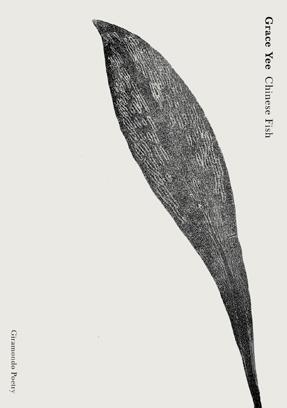
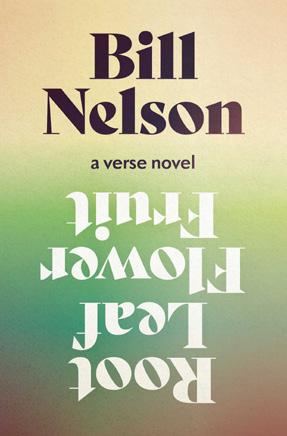

Megan Kitching
Published by Otago University Press
Grace Yee
Published by Giramondo Publishing
Bill Nelson
Published by Te Herenga Waka University Press
Isla Huia (Te Āti Haunui a-Pāpārangi, Uenuku)
Published by Dead Bird Books

Published by Otago University Press
With a polymath’s ear and a photographer’s eye, Megan Kitching creates sharp, complex pictures of the landscapes and lifescapes of Aotearoa. Many of her best poems focus on unruly coastal zones as points of contact, where history is always being made and remade, but she doesn’t ignore the human domain with its ‘petty hungers or awkward flutters’. Importantly, her work insists on the fact that difficult social and political questions cannot be separated from aesthetic ones.
I’m sitting on the gravel where the cars pull in outside the paddock gate. It’s too early for devices so as my pony grazes I dawdle my hand among the weeds.
Knowing the pleat of a plantain leaf, I tug and knot the hairy stem around itself to spring the feathered nub. It jumps a distance and I look after, idly.
There I discover a thing: that this verge of afternoon dilates the closer down I get. The grain and scatter makes me small of quiet. There’s a drift here I can follow.
Into the corolla of a flower. Say, a buttercup: its name is to lightly hold, to settle on this yellow brim that cradles me as I sit there still.
I still remember sitting by the road’s edge in the petals when a ute’s tyres crunched and a man leaned out to ask me what I was doing.
With no thought I said, I’m waiting to be picked up. If you stay there you will be, he told me. But I am distinct from that flower and from him, as I had noticed.
The fern fronds its dinky table, epiphyllum sprawls in a chair pulled up to the window. The aspidistra has the floor. The plants of this lounge are sturdy with abiding; they sit astride the banal hours and feed like mussels on any light that washes in. When you come home some are waxen, tight-lipped, admonitory. Others are curved, coy, uplifted in a wave yet unmoved: your whatever mood like your talk merely brushes past, a puzzling draught. The plants have engaged this room for a long smoke of a dusty thought. You catch the murmur of their wry, cross-stemmed turning round the pot. Stymied at times, stunted at the tongue for missing the water you dole out but tending to love whenever sun sidles over. How it mottles leaves to blush, raises their pitch of bristling stillness until time drips from their epidermis sweet as liquorice.
I have made a mistake.
Out in this aching stasis of frost surfaces plane away from me tiny down there, and an airlock has closed.
The shops feel distant as cold suns. I am scared to go beyond my toes. I watch their snub grips like a dentist step, muffled step, up the brittle spangled path the light forgot.
Day comes by degrees. Cars crunch past through crevasses scattering bones and every gravel sits toothed in shadow.
Have I ventured so close to old?
I think of the slip of a sole and my heart fuses.
Once the tyres slid. Just once. A slight and gracious sidle to the kerb. I sat, the wheel numb. Said sorry to my mother who was beside me in that momentary black and now is gone.
I have moved south. It happens. We orbit that icy continent and brush against its loss. The frost is precious and will lift.
I wrap myself and go on, walking and falling. I may never get used to this.
The book hurts but I go on reading. It doesn’t take long once we come to it: sharp as an adze blow, ash blaze, rats’ teeth, whalebone, deals done, a swift overrun. The toll of knock-on consequences like a ship’s wake razing shore upon shore is a line too often sung. Eaten, exhausted, our stores of regret for the flightless dead.
Down on the beach, gulls are feeding. All I do for today is watch each fend their patch as terns zone in, heads cocked. Fish shirr water, fleet away to their own resources. Ponderous, as if evolving only now, dimly feeling something has changed, chitons graze the rock. There is food in books, too, better knowing, but until we come to that let algae, plankton, foliage flourish long enough to keep the survivors fed.

Grace Yee’s sequence narrates a family’s assimilation into New Zealand life from the 1960s to the 1980s with a striking aesthetic. We navigate swerves in personae, extratextuality, illustrations, Cantonese-Taishanese phrases and English translations provided on the back pages. Yee skillfully bends genres and displaces the reader, evoking the unsettledness of migration. An invigorating read with its tapestry of scenes, characters, food, and language, Chinese Fish contributes a new archival poetics to the Chinese trans-Tasman diaspora.
In the classroom neighbour Rae does all the talking. This is Cherry, doesn’t speak much English ( 一句唔識講 ) … that’s right, she’ll learn, bright little thing. Her mother’s hunched over a tiny table, leaving a parting gift: a skinny green crayon house with a high-pitched roof, fat curtains, no door or chimney to let out the heat – 媽媽? 媽媽!
Missus L’s legs pooling at the ankles, blueeyed dolls on the wall not-blinking, a smiling sun, fat-cheeked wind, black-eyed rain, bells ringing, pink-faced boys chanting nah-na-na-nah-na-nah-na-na-nah-na… What’s the weather today boys and girls?
Frequently, Chinese children know not one word of English when they begin school. The transition would be so much easier if their parents made the effort to expose them to our language from infancy. It is difficult, however, because the majority of them insist on sticking to their own kind.

the new baby has her eyes closed, a pale-blue hat on her head, and her hands bound in white mittens so she doesn’t scratch her face and cry. in (our) chinese the word for scratch is wah 搲 and the word for cry is hook 哭 – so if the baby wahs her face she will hook. I look at my sister’s face: the folded eyes, the barely nose, flat cheeks glowing like a sixty-watt lightbulb, and that’s when it comes to me, that’s when I know: that even if we spend the next hundred years carving roast lamb on sundays, buttering white bread, and boiling brussels sprouts, we could never be them, nor they us, because if someone were to hook an english baby’s face she would wah! – even if she had her mittens on.
In the garage she drops the bike, wipes her face on the back of her sleeve. They had jabbed their bony elbows into her ribs hoicked into her basket Piss off ya Chinese bitch! gravelled her spokes Fuck off back to China! groped her shiny silver bell ding! ding! ding! She landed on her hip in the gutter ( gagging on their 鬼仔 sweat ). They never dared to chant the comeback so popular with Kiwi kids: sticks and stones may break my bones but names will never hurt me.
Star Trek’s beaming on the TV, coals glowing in the grate ( the house cold, as always ), Lenore and Baby Joseph on their knees, palms black, opening the day’s stack of newspapers on the coffee table, her mother in the kitchen wiping the bench with a tea towel, looking up at her tear-stained-pebble-stung face, buttoning up her work smock, just heat this up for dinner ok?
English boy
veeery cheeky
While the Chinese were protected under British law, verbal abuse, vandalism and physical assault were commonplace and perceived by many to be ‘high-spirited pranks’. what can you do? nothing can do 冇辦法

This intriguing verse novel leads us at a walking pace – sometimes tumbling and scraping – across country and suburb, and volatile seasons. There are pivots in perspective and a rich sense of deep time as we encounter nature, injury and recovery, and a settler farming legacy. Bill Nelson’s writing has a sonic quality, protean line breaks, and surprise story threads. The final section with its hint of the New Zealand gothic, is gripping.
When they first talked about retiring, it was going to be flowers, long rows, tropical and temperate, mountainous and wild, she’d always loved the idea of farming flowers, but the research had done her in, it seemed there was no way to make it work without pesticide, herbicide, fertiliser, without doming everything in plastic and glass, so their plans changed; vegetables, eggs and honey, and later, avocado trees, growing food, organic, Demeter, Bio-gro, and the WWOOFers – Germans and Brits, backpackers and drifters, but also Brazilians and Swedes and the odd Korean or Japanese kid, some keen on organics, some just looking for a place to stay, most leaving grateful, some leaving with money from the cash box or a jar or two of honey, and she wasn’t bothered; it was fate, flawless young people doing flawed things, but her husband didn’t think that way, bad decisions haunted him, he could have made more money, taken more efficient routes; he couldn’t stand people who made stupid decisions, was never shy to criticise, just like their children, one foot in the old world, free love and marriage, making money and getting stoned, they couldn’t understand why you would wait so long to do something you loved so much, but she couldn’t blame them, the husbands, the children, the drifters all just trying to find a comfortable position to live in.
The organ has stacked keyboards, bakelite switches and backlit buttons. I play it after dinner. I remember playing it as a kid, mainly messing around with the automatic drum tracks. I was always drawn to bossa nova, that weird instrument that sounds like a baboon, and now the smooth weight of the keys, and the foot pedals with an even deeper heft, and I struggle to remember how to make chords and instead play long religious notes until I start to put myself to sleep. When I’m finished, I depress the power button and the lights slowly dim, an endless hum from somewhere inside the heavy woodwork.
She started with windbreaks and compost and only then ploughed the fields, a lot of earth to move, that’s when the WWOOFers came in handy – heavy lifting and digging, too finicky for the tractor, they came and went, sometimes only for a few days, which was almost more trouble that it was worth, but she enjoyed them all, their optimism and lack of care, the cultures and backgrounds so different from her own, combined into an easy soup of laughter and wide-eyed wonder, something she had once although could barely remember it, her children, marriage, wiping out everything that she was before, some became friends, some were like children to fret over, penniless and hopeful, she watched them growing out of the earth, not unlike seedlings she thought, taking something from the farm but also replenishing it, replenishing her, and when they left she felt more in love than ever, and tried to hang on to the feeling.
I lie on the creaky steel-sprung bed and pile the heavy blankets on top of me. The ceiling is high and worn, like it’s been scrubbed free of paint, the grey boards showing through.
Once as a child I woke to click beetles dropping from that ceiling. I panicked, screamed, and she rushed into the room, turned on the light and like magic, all the beetles disappeared. She tucked me back in and left me lying in the dark with my eyes open. But mostly I remember her from photos, lean arms, collared sleeveless blouses, looking straight into the camera. Which was not who she became. Once, my grandfather forgot their wedding anniversary – he was lost in some contraption he’d dredged up –and she scrubbed away at the benches all night, grinding away the surface, millimetre by millimetre.
I make a list. I’ll work outwards – start in the hallway, then the dining room; I’ll throw away the fishing magazines, the piles of old newspapers, some published before I was born. I’ll scrub the kitchen, dust the lounge. The bedrooms will have to suffer. The laundry aired out.
And I’ll water-blast the mould from the verandah, trim the lawn, tidy the flower beds and prune the trees, rake the stones in the driveway and pluck weeds out with my fingers, tidy the garage, remove the junk and old tyres from the rafters.
I’ll top the hedge around the house, then the paddocks, turn the soil, hide the weeds, dig in the compost. It seems pointless but the compost piles need to go and I can’t think of anywhere else to put them. I’ll whack around the avocado trees, throw the dead fruit in a pile, repair the torn plastic in the hot house, throw out the dried-up tomato plants. I’ll slap some paint on the letterbox. The first thing they’ll see of course. Prospective buyers, the investment of their life. An impression radiating inward, towards that little muscle, decisive, deep in the stomach.
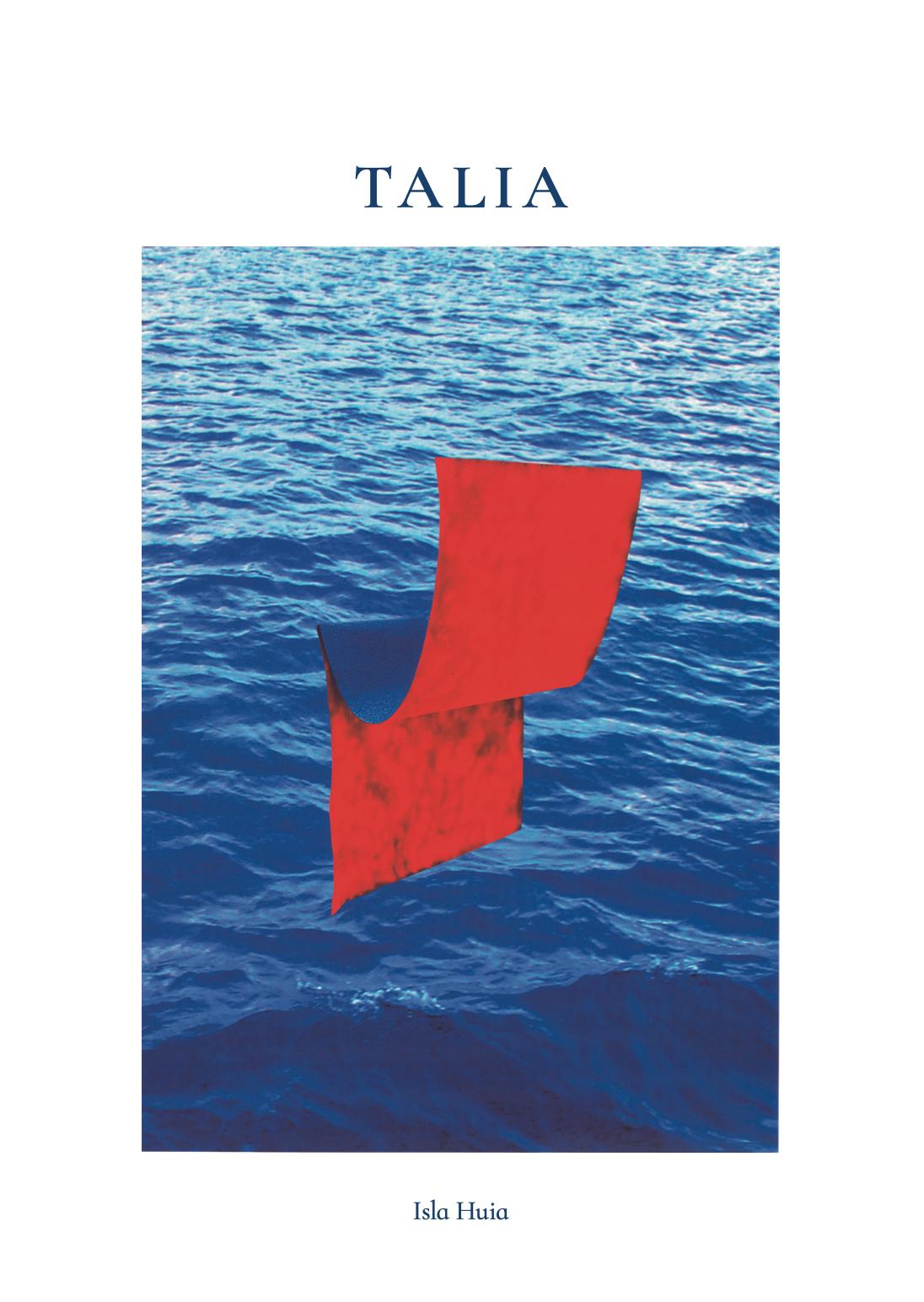
These poems buzz with energy: intellectual, linguistic, literary. Sharply conceived, engaged in conversation and debate across poetry, place, history, and language, Isla Huia’s work brings unexpected material into productive collision. English and te reo Māori meet this way, as do lines and echoes from older poets with present concerns. Huia has an inspired ear and engaged eye, and her poems’ sonic range and sense of adventure combine with a crafter’s care on the page.
“In some future day, when this generation is dead and gone, to those who look up inquiringly at this statue it will be told how the fathers of the colony left their homes and tamed the wilderness under the leadership of a man of heroic type; how, when he died, the representatives of the people, appreciating his character, determined to erect a monument worthy of his memory, and how a great sculptor in executing the work impressed it with the stamp of his genius. So shall some old man speak in the after time To all the people, winning reverence. And now I may congratulate the city that this statue is about to be handed over to its care, worthy as it is of admiration, like King Arthur’s sword of old, not only for the memory of a great man, but on account of its own intrinsic beauty not like that sword, to disappear from the eyes of men, but to be preserved by us and our successors as a possession for ever.” - C.C. Bowen, 7 Aug 1867
godley, you’re standing awful casual up there warmer layers slung in your crook
lookin like your foot wants to accelerate something or stand or somethings neck
you’re balding now but have done well to love what’s left a blueprint of my own swelling curls framing eyes that are hungry, unyielding for the next swampland you may conquer another someplace hot and brown to be the founder of, frame this as experimental, or really good work, or home.
godley, how’s it looking from up theresince your recent resurrection you can now see the birds, shitting in the rafters
they want to fix that too, apparently we are all walking around gutted without a cathedral headless, big bellies bleeding, well i’m still upright;
same as you, the first face of this land to be petrified in bronze, cast in forever the creation story of pākehā public art auē old koro, i see your oxygen and your ships, and associations i don’t even want to patu you up or send you shaking at the whites of my eyes, i just want them to
stop spending our money on your very dead face, freckled
i imagine, and maybe cracked i want to whakaiti you, wanna
munch on your mana, wanna bark at you, wanna rip up the stone and the bins and the benches and plant a pā harakeke and whistle to my bird brothers and my tattooed sisters and my mobsters and my students and my knees and we can just all here sit on you like the weight of our great mother and hold your hand while the dust
of your settler manhood does settle
e tau, e tau
e tau, e tau
when the first four ships came to see what you had made and then live on it, your wife said you did not know whether to cry, or laugh, and so you did both godley, did you know my ancestors? what were they like? what did they say? were you kind to them? did they dance for you? in me they are immortalized like you in this square chest of the city
i hold them up to the sun and say thank you, one by one to the bones
interred in us just as the words of this plaque make memory of you godley, why don’t you lay down just for a little while just sleep let me see the sky your stomach takes up.
12. te awa
the marae is locked. i consider staging my own death, causing the catalyst for a tangi. it turns out, my cousin said, if you respect the river it’ll never kill you, even if you ask. i use aunty’s toilets in the campground office. i take a photo of the locked gate, the ātea fishnetted by metal. on the banks, i put my ankles in, and say he hōnore in that place behind my eyes. i do not believe in one atua, but it’s the only one i know. we say it every morning in class, before whaea is fired.
it’s a gravel road to the convent. i know about the poet, so i’m looking for his house. i don’t yet know about the raping. in the kitchen, a brown nun takes five dollars a head for the night. i don’t yet know how many greens there are, but i can see them all at once. i can smell the dirt. i sleep in the infirmary bed on the upper floor. a paradox, really, the waiting to be murdered by what’s beyond the plastic drape, and the lack of concern about it. i say to mā when i’m urbanised again, about the way the fog rolls on the river in the morning, about the writing a fake prayer in the chapel and leaving it on the altar. about mother mary in stone, in the garden. i say to her about these villages i am possessed by, about tīpuna and graves and birds. she says she regrets my scottish name.
in tūrangi, i consider death too. i know it like the back of my hand, which is an emergency exit from where i came; which is the wet earth and each star that led us here. i know i want to be a hot body, like really geothermal, brown and smelling like sinew. i am child floating, not yet city thrusting or yearning for another kind of sun, all artificial. i’m sober, looking at the forest floor, saying, i know you from somewhere.
maybe from somewhere in my digestive tract, or in aunty’s house where we chat up the whakapapa over elderflower cordial, about how it’s more circle than line, about how hinewai is a synonym for every kui that ever lived. by god, it is almost meningococcal to wash in my own body of water. in tūrangi i consider just laying me down with the wētā. fuck i feel māori when i’m not scared. when crater lakes steam the phlegm from my shell and it comes up half vomit, half karanga mai, karanga mai, karanga mai rā.


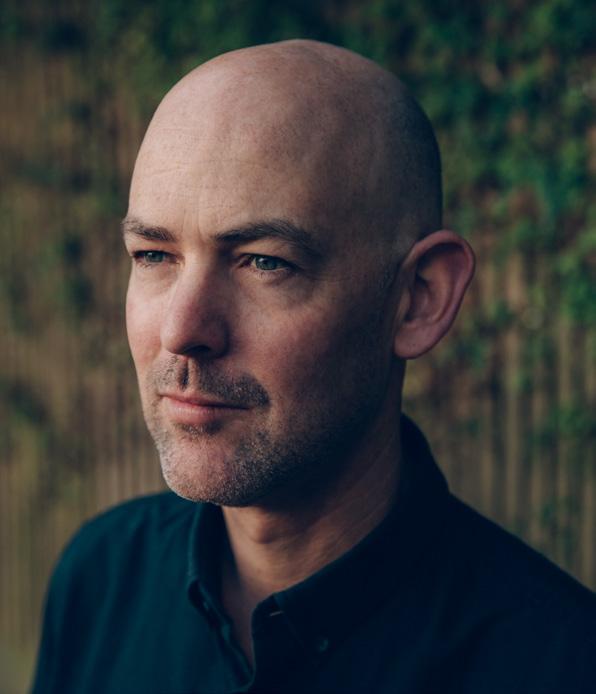
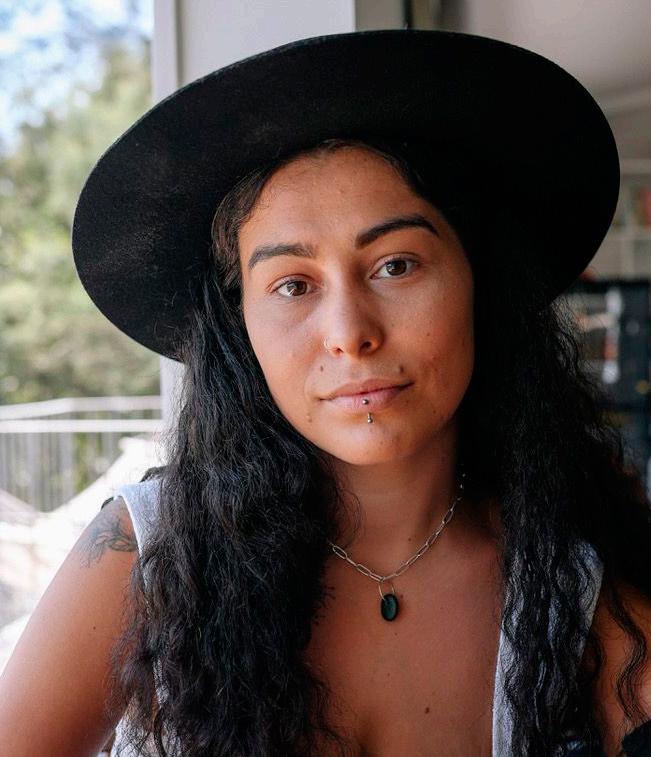
Whakamihi to all the authors whose work has been recognised and honoured in this this year’s Ockham New Zealand Book Awards. We encourage readers to seek their titles in bookstores and libraries around the motu. And we invite you to join us on Wednesday 15 May to hear the finalists reading from their books, and to celebrate the ultimate winners of the $125,000 prize pool at the awards ceremony, during the Auckland Writers Festival. To find out more follow NewZealandBookAwards or #theockhams on Facebook and Instagram.
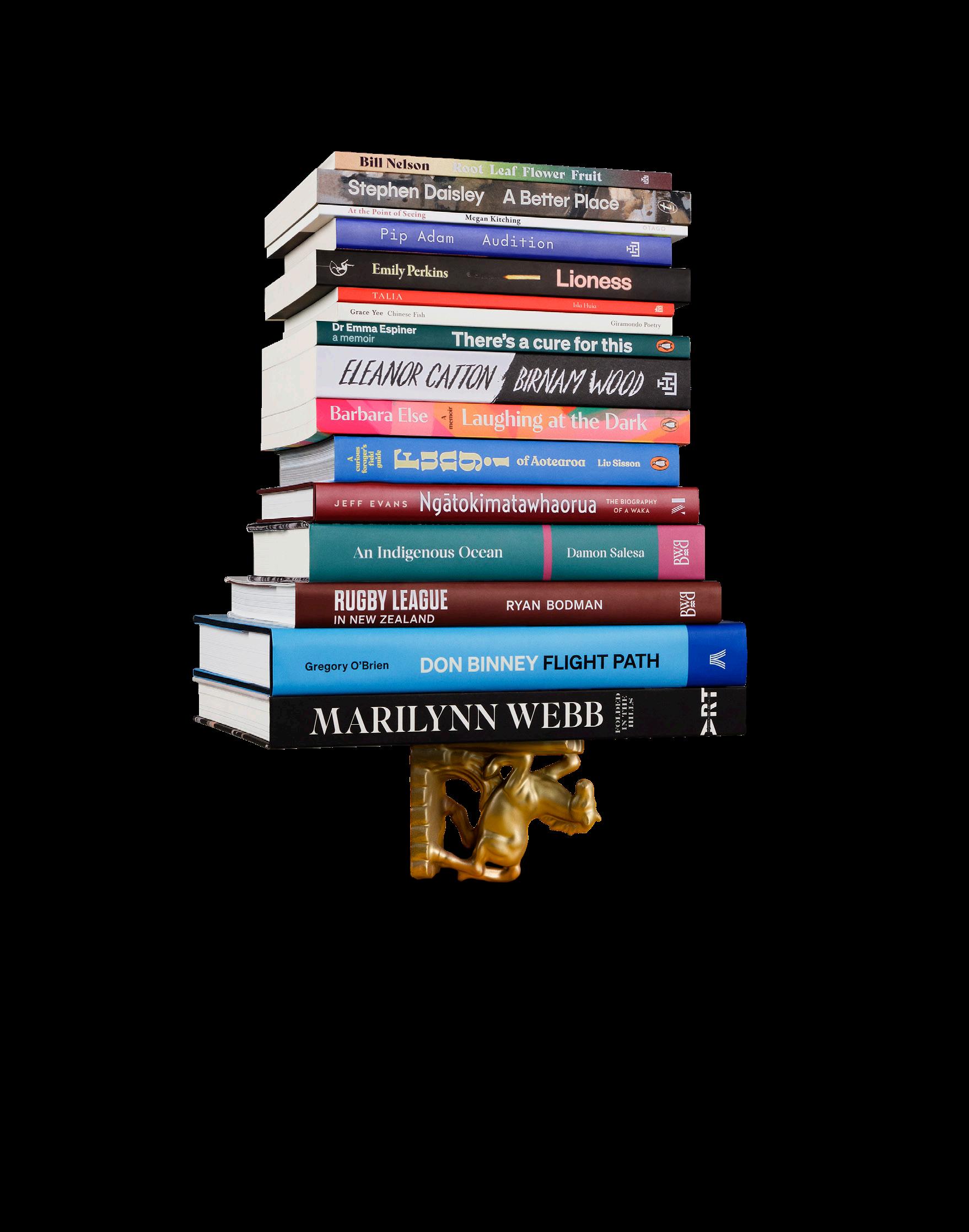
The Ockhams Samplers were compiled with the assistance of the Academy of New Zealand Literature.
Look out for the other category samplers at:

